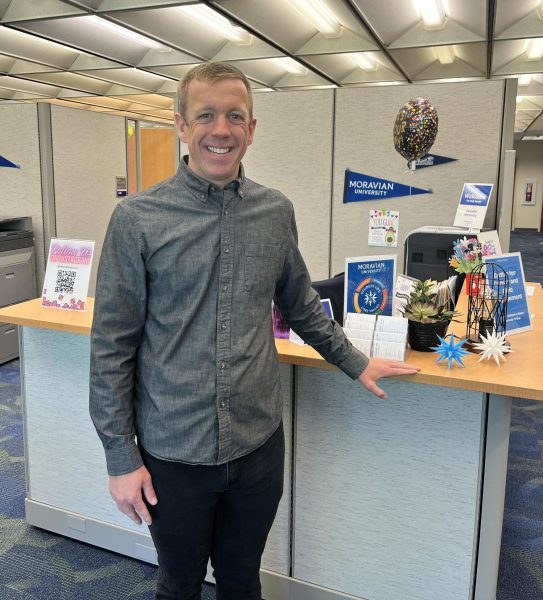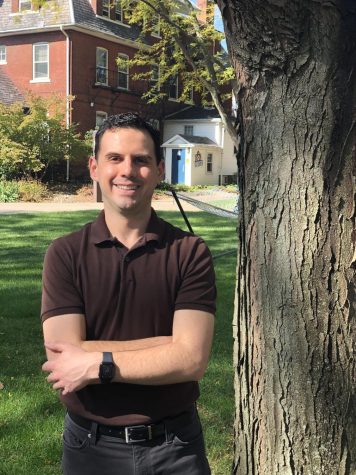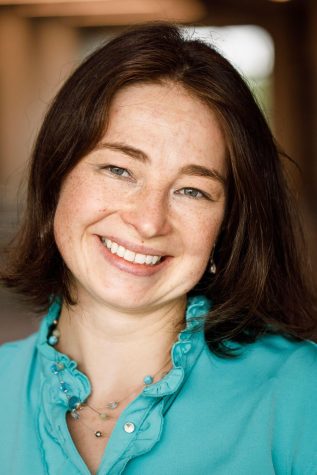Filter Out Junk News and Find Real Information: Database Advice for Students from Political Science Students
In POSC 292 ST: New American Political Thought, twelve political science majors and minors set the reading list for the second part of the semester based on their respective interests in contemporary U.S. politics. Thanks to special information literacy training from Kim Demyan, Assistant Director of Reeves Library, students were well versed in advanced database searches using keywords, subject terms, and metadata to refine scholarly searches in their various areas of interest with regard to U.S. politics of the present, with the present defined as a window from about 2014 to today.
Student Database Searching Advice
Weed out! A database search can help you find relevant sources and can spare you the rest.
Start with keyword terms (natural language terms used in daily life), the words that make sense to you.
Start broad, make discoveries along the way, and figure out how to narrow your search.
Don’t give up after your first search. Settle into the search process. Be curious and persistent. Set aside 10 to 15 quiet minutes for your first search.
Along the way, you will find important subject terms (discourse terms determined by experts) that will help you refine your search.
Don’t use too many search terms at once. You may not find any articles that have all of them.
Over time, you learn how to find the right balance between searches that are too broad and searches that may be too narrow.
Use metadata (information that makes an article discoverable) to filter your results on the left side of the screen on EBSCOHost, for example by restricting years of publication to very recent articles.
Find the experts! Be picky. Metadata can help you find peer-reviewed sources (scholarly articles vetted by disciplinary experts).
Consider using references from already selected articles relevant to your topic as other potential resources.
Database searches often provide you with more information about authors and institutional locations.
Lots of great articles? Organize, use, and cite them with the help of Zotero (free bibliographic software) to facilitate and structure your research.
Searching is easier than expected! Bonus: exposure to additional articles during a search
What students learned from reading contemporary scholarship on American politics
Comparing scholarly sources and mass media, it was evident that the scholarship was more neutral in terms of the language of polarization. Scholarly articles provide facts and evidence developed and refined through scholarly methods and the peer review process rather than sensationalism produced in a hurry. Reading such articles teaches you not just to follow the news on various media; instead you go looking for what you want to read. You find the news instead of algorithms bringing the news to you. Having access to a database means that you gather the data and facts to shape your own educated opinion. Reading scholarship instead of mass media presents the nuances of political issues; social media often reduces and simplifies issues and perspectives into bite-sized pieces of information that sometimes are meant to attract attention or evoke emotion more than inform. Scholarly articles are more intellectually challenging to read but also more rewarding and productive of new thoughts and insights.
Buzzwords from the mass and social media are not avoided in scholarship but studied. Political terms are used more precisely. The vocabulary used in a scholarly article might be its own lesson. For example, we learned about terms that aren’t commonly taught such as intercommunalism (see Harry Faber’s chosen article above). Scholarly articles allow the space and time to really expand on new ideas. They slow you down in your reading and thought process, but it is worth it if you are committed to expanding your knowledge and capacity to talk about politics constructively. Reading scholarship gives you the vocabulary and in-depth knowledge to talk about political issues and concepts that you might have heard about, but haven’t been able to articulate. The new political lexicon is an important skill set to gain from scholarship. Getting critical distance from mass media language actually makes it easier to speak with others about politics.
If you read about contemporary issues in this way, you will find new terms and new topics for discussion. You can also investigate issues that are rarely addressed. Have you always been Interested in class and have now become curious about race as well? Searching supports intersectional concerns: add your new term to your previous search. Every search produces more articles than you were looking for, and no single reading is conclusive in itself. To read scholarship is to enter into conversations that carry you on to new readings. We rarely got to the bottom of a single article, but we always took away an important term, source of information, or history. The students in this course enjoyed finding out about the political interests of others in this course by reading the articles they selected.
Not convinced? Follow the money: access to databases is expensive. Convenient access to good information costs money. As a student, you are a member of a community that uses its resources to provide this benefit. The students of POSC 292 encourage you to make good use of the privileged access to political information available to you by virtue of being a college student at Moravian University.
Access all Reeves Library databases A-Z here: https://moravian.libguides.com/az.php?t=36815
Still feeling stuck?? When you visit the Reeves Library website, there is a pop-up chat function that can connect you with a reference librarian in real-time. Additionally, you can make an appointment with one of the librarians at Reeves Library to help you in your searching process. Simply email [email protected] to set up an appointment.





